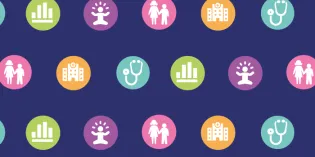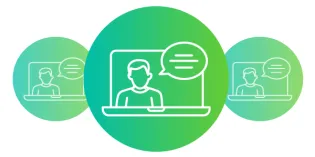Responding to publication of draft NICE guidance and the outcome of the NHS England review on access to clinically appropriate prescribing of cannabis-based products for medicinal use, Dr Mike Linney, Registrar and Chair of the Ethics Committee for the Royal College of Paediatrics and Child Health (RCPCH) said:
The publication of both the NICE draft guidance and the NHS England process review is welcome. NICE has undertaken a rigorous assessment of the current evidence and understand that given the current evidence base they cannot make a recommendation for treatment in childhood epilepsy.
We acknowledge that NICE have not made a recommendation against treatment – and this allows individual clinicians to make treatment choices in the best interests of their patients and allows for future research in this area. We note that the NICE draft guidelines specifically do not relate to the use of cannabidiol (Epidyolex) in Dravet and Lennox Gastaut syndrome as this is subject to a health technology appraisal that is ongoing and will report in the autumn.
Conclusions from both the NHS England process review and the NICE draft guidelines highlight that there is an urgent need for research and that this should be funded and that the CBMP industry should help facilitate this research. The Health and Social Care Committee echoed a call for more research earlier this year.
We welcome the NICE recommendation that any prescription of CBMPs should be initiated by a clinician on the GMC [General Medical Council] specialist register and that for children under 18 years of age this should be a tertiary paediatric specialist with a particular interest in the condition being treated.
We realise that the Home Secretary’s announcement last year significantly raised expectations that families would be freely able to access these products on the NHS. Unfortunately, that was never likely to be the case because of the underlying problem of lack of evidence regarding safety, efficacy and cost-effectiveness as is alluded to in the process review. This confirms the need for clear communication in such a complex issue. As cannabis based medicines are currently unlicensed1 , they are not routinely commissioned - it is important that patients have the opportunity to participate in the research. We recognise the families’ frustration and share with them the need to provide the best possible care for children with complex epilepsy and this makes the need for proper research into CBMPs all the more urgent.
You can read our briefing on medicinal cannabis for children and young people.
- 1There are many products and supplements available that are not made to the same quality as medicines. As well as the lack of evidence, there is an additional concern with these products as the amount of active ingredient can vary considerably. More information is available in the "Centre for Medicinal Cannabis" report below










